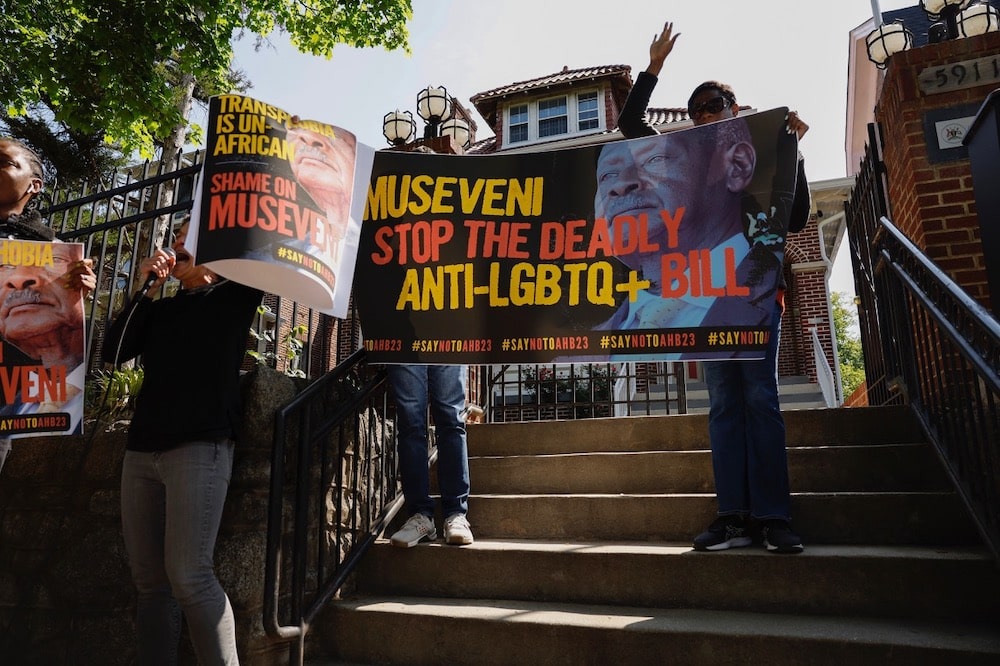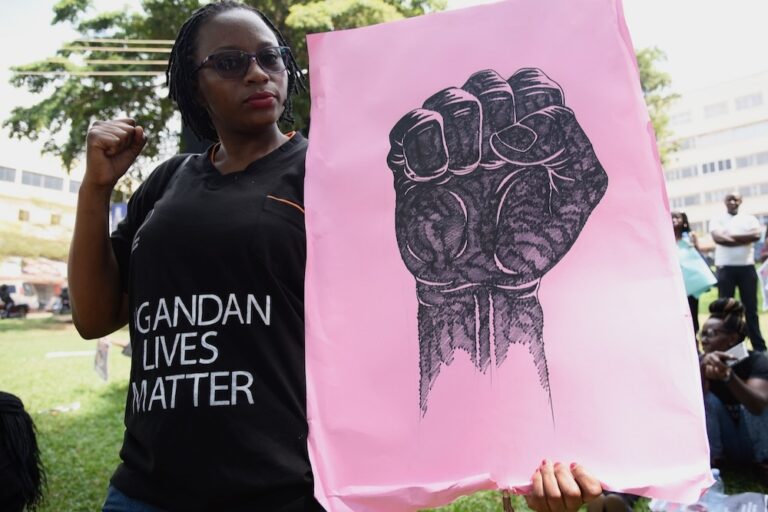An annual magazine featuring personal stories from the LGBTQI+ community is put on hold as management figure out how to keep sources safe.
This statement was originally published on cpj.org on 20 July 2023.
By Muthoki Mumo
Kuchu Times was founded eight years ago to give voice to Uganda’s LGBTQ+ community. Now, a new anti-homosexuality law is threatening this mission at a time when LGBTQ+ Ugandans are facing beatings and evictions.“People will tell us their stories and ask us not to put them out there, not until it is safer,” Kuchu Times deputy director, Ruth Muganzi, told CPJ. “We are meant to ensure LGBTI voices are heard but we are gagged. This is the pain we suffer since the law was passed.”
Uganda’s Anti-Homosexuality Act, enacted in May, punishes consensual same-sex relations with life imprisonment, entrenching restrictions in a 1950 penal code. Those convicted of “aggravated homosexuality” for same-sex relations with minors, the elderly, or the disabled, face the death penalty. There are reports that the law has sparked “increased vigilantism” against LGBTQ+ Ugandans, and that some have been forced into exile or hiding.
Kuchu Times still posts on its website. But its annual magazine, Bombastic, is on hold in part because the team is grappling with how to print a publication that mostly features personal accounts without endangering sources.
The law has potential ramifications for the press beyond issues with sourcing. Anyone convicted of printing, broadcasting, or distributing material “promoting or encouraging homosexuality” could be imprisoned for 20 years. Free speech advocates fear that this provision poses a risk to the media.
“This law, in so many ways, is an anti-publication law. The broad terms in which it talks about promoting homosexuality can be interpreted to mean anything,” said Nicholas Opiyo, a human rights activist and one of the lawyers in a petition challenging the law’s constitutionality. “Covering a story that depicts the community in a positive light could be interpreted to mean promoting homosexuality.”
Companies found to be promoting homosexuality face license revocations or fines of up to one billion Ugandan shillings (US$269,000). It is a financial penalty akin to “strangulation,” said Robert Ssempala, executive director of Human Rights Network for Journalists-Uganda, a press rights group.
For Kuchu Times, which derives its name from the slang that queer Ugandans use to identify themselves, the implications of these provisions are clear — and grave. But there are signs that the law may have a chilling effect on news organizations that don’t solely focus on the LGBTQ+ community, too.
CPJ interviewed 13 journalists about the new law. Most requested anonymity, fearing professional and social repercussions of talking about a law they perceive to have popular support, including within the media industry. Nine told CPJ that while they have not cut back their reporting, and their newsrooms still cover the LGBTQ+ community, the law is affecting the way they work.
Two Ugandan reporters contributing to international media say that they’ve had trouble finding LGBTQ+ Ugandans to interview about the law’s impact on access to HIV treatment, and about incidents of persecution. A third journalist has decided to forgo a byline on some LGBTQ+ coverage “out of an abundance of caution.” A newspaper editor and a television reporter told CPJ that company lawyers have been brought into editorial discussions to advise on what copy might breach the law.
“Are you promoting homosexuality if you give a story about a gay person a lot of space in your paper? Or are you just reporting? Should you give these stories lower prominence?” the newspaper editor said. “It is a thin line; journalists might not know where it is until they’ve crossed it.”
Fox Odoi-Oyweloyo, a ruling party politician who voted against the law and is now petitioning against it in court, told CPJ that he recently declined four broadcast interview invitations after journalists called in advance and asked him to tone down his views once on air. Ssempala said that in two instances, broadcast journalists warned him not to “go there” when he broached the law’s press freedom implications.
Three of the journalists who spoke to CPJ also expressed concern that given Uganda’s spotty press freedom record, which includes physical attacks on journalists, arrests, and the use of criminal libel charges against the press, the law might be used as a pretext to target critical media.
“It is a trap that you eventually walk into. You might be punished not because anyone is necessarily outraged because you interviewed an LGBTQ person, but because they are unhappy with your [other] coverage,” said Lydia Namubiru, news editor of the Pan-African weekly e-paper, The Continent.
Authorities in Uganda have previously sanctioned the media for its coverage of LGBTQ+ issues. In 2004, regulators fined a radio station US$1,000 for depicting homosexuality as an “acceptable way of life” and in 2007, a radio show host was suspended after interviewing a lesbian activist. Bombastic has also faced threats.
“History has shown us it has happened. It is not inconceivable that the same will happen again,” said Opiyo.
Namubiru told CPJ she also worries that the media will “not grow better” at reporting on the LGBTQ+ community while the law makes it difficult or dangerous to publish their voices.
Ugandan media have a record of homophobic, even inflammatory, coverage of the LGBTQ+ community. In 2010, a now-defunct newspaper called for the hanging of homosexuals. One of those named in the publication, gay rights activist David Kato, was bludgeoned to death a few months later. In 2014 the Red Pepper tabloid exposed the names of people it called the “200 top homos.”
In court filings responding to petitions challenging the law, Uganda’s attorney general Kiryowa Kiwanuka said the law does not infringe on human rights, including freedom of expression. The attorney general said that the law is “intended to protect the traditional family” and is “unambiguous and purposeful.”
Some journalists share similar opinions. A broadcast reporter based in eastern Uganda feels empowered to investigate sexual crimes by a section of the law requiring the public to report “reasonable suspicion” of the “offense of homosexuality,” the reporter told CPJ.
CPJ’s emails to the office of Attorney General Kiwanuka were unanswered. CPJ called Asuman Basalirwa, the opposition legislator who authored the law, and sent requests for comment via his parliamentary email address and text message but did not receive any replies.
Other African journalists may also soon face freedom of expression concerns surrounding anti-LGBTQ+ laws. Ghana is considering a law which carries the potential for censorship. In Kenya, one lawmaker has called for a ban on “any discussions, publications and spread of news on same-sex relationships” while another has drafted a law similar to Uganda’s. Cameroon’s media regulator has threatened to suspend programs “promoting homosexual practices.”
As Ugandans wait on the courts to decide the constitutionality of the Anti-Homosexuality Act, Muganzi remains defiant. This law, she said, is just another battle for the country’s LGBTQ+ community and Kuchu Times will not stay away from the frontlines.
“We must keep speaking up so that Ugandans have a wider picture of LGBTI people. We must keep saying: We are not a myth. We are not an import of the West. We are your friends, your neighbors, your brothers, and your sisters,” she said. “As a lesbian woman, I do not have the privilege to remain afraid and silent.”
Muthoki Mumo is CPJ’s sub-Saharan Africa representative. She is based in Nairobi, Kenya, and has a master’s in journalism and globalization from the University of Hamburg.



